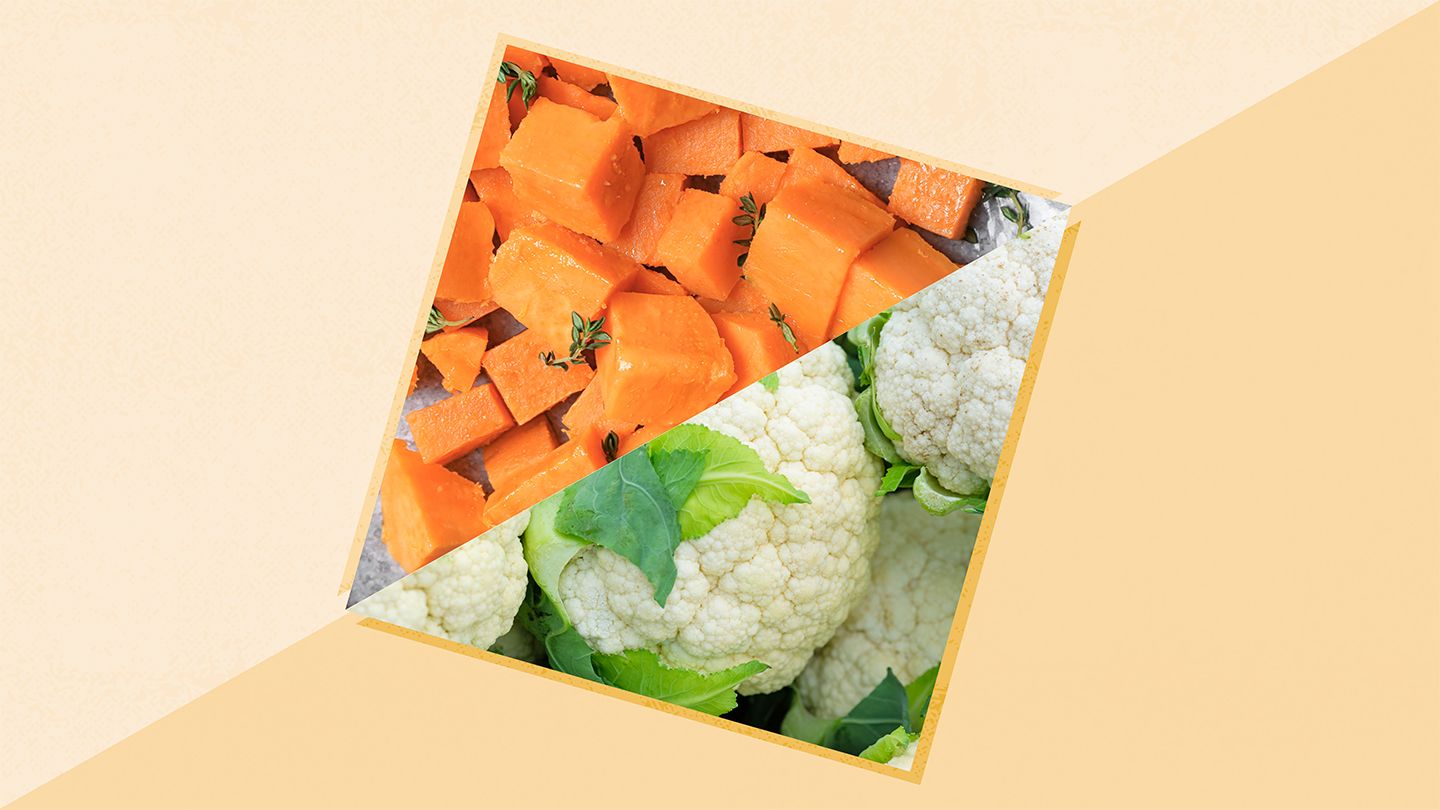Getting Enough Vitamin C on a Ketogenic Diet
The ketogenic (keto) diet is a very low-carb, high-fat diet that can offer impressive health benefits like weight loss, lower blood sugar, and reduced inflammation. However, restricting carbs can make it challenging to get adequate amounts of certain nutrients, including vitamin C.
Vitamin C is an essential micronutrient with important roles in immune function, collagen production, bone health, and protecting cells from damage. Not getting enough on keto may negatively impact your health and energy levels.
Luckily, there are plenty of delicious low-carb, keto-friendly ways to get the vitamin C your body needs to thrive on a ketogenic diet.
Vitamin C Recommendations
The recommended daily intake for vitamin C is:
- Men: 90 mg per day
- Women: 75 mg per day
- Pregnant women: 85 mg per day
- Breastfeeding women: 120 mg per day
Smokers require an additional 35 mg per day since smoking depletes vitamin C levels. Consuming more than 2,000 mg per day is not recommended as it may cause diarrhea, nausea, and kidney stones.
Signs of Vitamin C Deficiency
Potential symptoms of vitamin C deficiency to watch for include:
- Fatigue and weakness
- Frequent infections
- Gum inflammation and bleeding
- Dry, scaly skin
- Nosebleeds
- Easy bruising
- Slow wound healing
- Anemia
Getting sufficient vitamin C prevents deficiency and provides optimal health benefits.
Top Keto-Friendly Vitamin C Foods
Here are some of the best low-carb, ketogenic diet-approved sources of vitamin C to incorporate into your meal plan:
Broccoli
1 cup chopped raw broccoli: 81 mg vitamin C (101% DV)
With just 6 grams of carbs and 2.5 grams fiber per cup, broccoli is a vitamin C superstar. It provides over your entire daily need in one serving. Enjoy it raw in salads, roasted, or cooked in stir fries.
Brussels Sprouts
1 cup cooked Brussels sprouts: 98 mg vitamin C (122% DV)
Brussels sprouts pack 4 grams of carbs, 2 grams of fiber, and an immense amount of vitamin C into each 1 cup cooked serving. Roast them with bacon for a delicious keto side.
Kale
1 cup raw kale: 80 mg vitamin C (100% DV)
With only 1.5 net carbs per cup, kale makes it easy to get 100% of your vitamin C needs. The dark leafy greens are also rich in antioxidants and can be eaten raw, cooked, or blended into smoothies.
Red Bell Pepper
1 medium pepper: 152 mg vitamin C (190% DV)
Red bell peppers provide a whopping 190% of the daily value for vitamin C in just 1 medium pepper (8 grams of carbs and 3 grams of fiber). Enjoy raw with healthy fats like avocado or roast for a sweet, nutritious bite.
Snow Peas
1 cup snow peas: 48 mg vitamin C (60% DV)
Crunchy snow peas are low in carbs with 4 grams per cup, plus 2 grams of fiber. Eat them raw or lightly cooked to get a good amount of vitamin C.
Spinach
1 cup raw spinach: 28 mg vitamin C (35% DV)
Spinach provides vitamin C, A, K, iron, and antioxidants with just 1 gram of net carbs per cup. Add raw spinach to salads, smoothies, scrambled eggs, and dips for an easy nutrition boost.
Cauliflower
1 cup raw cauliflower florets: 77 mg vitamin C (96% DV)
Cauliflower is exceptionally low in carbs with just 5 grams and 2 grams of fiber per cup. It's incredibly versatile - roast it, rice it, blend into pizza crust, or enjoy raw with ranch dip for that important vitamin C intake.
Strawberries
1 cup sliced strawberries: 98 mg vitamin C (122% DV)
Strawberries make a sweet, vitamin C-rich choice to satisfy your fruit craving on keto, with 8 grams of carbs and 3 grams of fiber per cup. Top yogurt or cottage cheese with fresh sliced berries.
Green Peppers
1 medium green pepper: 120 mg vitamin C (150% DV)
One medium green bell pepper has 9 grams of carbs with 2 grams of fiber, supplying 150% of your vitamin C in just one veggie. Enjoy raw or stuffed with keto-friendly fillings like meat, cheese, or egg salad.
Other Diet Tips to Boost Vitamin C Intake
Besides eating vitamin C-rich foods on keto, there are other diet strategies that can help increase your intake:
Take a Greens Powder
High quality greens powders made from concentrated superfoods like spinach, kale, broccoli, and acerola cherry extract can provide 100% or more of your vitamin C needs in one scoop. Mix into smoothies or water.
Eat More Cruciferous Veggies
Broccoli, Brussels sprouts, cauliflower, kale and other cruciferous veggies are among the highest vitamin C foods. Aim to eat 1-2 cups per day.
Spice It Up
Chili powder, cayenne pepper, paprika, and turmeric are all great options for spicing up keto meals while getting an antioxidant vitamin C boost.
Keep it Raw
Cooking vitamin C-rich veggies like broccoli, peppers, and cabbage can degrade the nutrient content. Eat some of them raw each day for maximum benefits.
Take a Multivitamin
A high quality keto-friendly multivitamin can help cover any potential vitamin C gaps, especially if you don't eat enough veggies. Look for one with 100% or more of your daily needs.
Supplementing With Vitamin C
Along with a vitamin C-rich diet, taking a daily vitamin C supplement can offer increased immune defense, antioxidant protection, and assurance you are meeting your needs on a keto or low-carb diet. Here are some top supplement options:
Vitamin C Powder
Vitamin C powder provides a pure, potent source of the nutrient that mixes easily into water, smoothies, or juice. Look for non-GMO powders without added sugars.
Vitamin C Gummies
For those who don't like swallowing pills, vitamin C gummies offer a tasty chewable option. Find ones made with natural colors and sweeteners aligned with keto diet guidelines.
Liposomal Vitamin C
Liposomal vitamin C has the nutrient encased in tiny lipid spheres that increase absorption compared to regular vitamin C. However, its pricier.
Buffered Vitamin C Tablets
Buffered vitamin C is formulated to be gentle on the stomach. Magnesium, calcium, and potassium help ease any potential GI irritation from high-dose vitamin C.
For optimal benefits, split your daily vitamin C intake into two doses such as morning and evening rather than taking it all at once.
Is Vitamin C Supplementation Necessary on Keto?
Consuming vitamin C-rich vegetables daily, using greens powders, and taking a quality multivitamin will provide adequate vitamin C for most people following a ketogenic diet. Additional supplementation may be beneficial:
- If you don't eat the recommended amount of low-carb veggies each day.
- If you smoke, which rapidly depletes vitamin C.
- When ill, injured, or undergoing prolonged stress.
- To promote collagen production and healthy skin.
- If you experience frequent bruising or slow wound healing.
Discuss supplementing with your healthcare provider to determine if more vitamin C from supplements may be helpful based on your individual nutrition and health status.
The Bottom Line
Vitamin C is an essential nutrient with many vital roles in your health. With some planning, it is definitely possible to meet your daily vitamin C needs following a low-carb keto diet.
Focus on low-carb vegetable sources like broccoli, Brussels sprouts, bell peppers, cauliflower, kale, and strawberries. Supplement as needed with greens powders, a multivitamin, or vitamin C supplement for increased antioxidant protection and immunity.
FAQs
Why do you need vitamin C on keto?
Vitamin C is an essential micronutrient that supports immune function, collagen production, bone health, and protects cells from damage. It's important to get adequate vitamin C on keto to avoid deficiency.
What vegetables are high in vitamin C and low in carbs?
Some of the top keto-friendly sources of vitamin C include broccoli, Brussels sprouts, bell peppers, kale, cauliflower, and spinach.
What fruits can you eat on keto for vitamin C?
Strawberries and small portions of raspberries, blackberries, and lemons offer vitamin C on keto. Be mindful of portion sizes due to their natural sugar content.
How much vitamin C should you get per day on keto?
The recommended daily intake of vitamin C is 90 mg for men, 75 mg for women. Pregnant and breastfeeding women need 85-120 mg. Supplement if food sources are inadequate.
Should you take a vitamin C supplement on keto?
A supplement can help fill vitamin C gaps if you don't eat enough low-carb produce. Consider a vitamin C powder, multivitamin, or buffered vitamin C tablets.
Disclaimer: This article is for informational purposes only and does not constitute medical advice. Always consult with a healthcare professional before starting any new treatment regimen.
Related Coverage
Spam and eggs both fit into ketogenic diet plans thanks to their high fat and protein content balanced with minimal carbs. Get recipes for keto breakfasts and meals....
Most types of seaweed are low in carbs and suitable for a keto diet. Seaweed provides nutrients and benefits like aiding digestion, reducing inflammation, and supporting brain and thyroid health....
Indulge your sweet tooth this Thanksgiving with delicious keto desserts like pies, cheesecakes, fudge, and more. Discover 25+ low-carb and sugar-free recipes....
Learn how to order keto-friendly meals at Red Lobster including the best entree, side, appetizer, and dessert options for low carb and high fat ketogenic diets....
Enjoy tequila on a low-carb or keto diet. Learn how to make delicious skinny cocktails using zero carb mixers like soda water, diet soda, and dry wine....
This complete guide makes keto fast food easy. Get tips for ordering keto at 5 Guys, see meal examples, and find other keto-friendly options at top chains....
If you've hit a weight loss plateau on the keto diet, try troubleshooting strategies like tracking carbs and calories, managing stress, fasting, and making keto modifications....
Starting a keto diet? Get a full 7-day keto meal plan including foods to eat and avoid, along with tips for success. This sample menu and shopping list will get you started....
An ear of corn contains around 15-20 net carbs, making it too high for keto but potentially okay in moderation for some low-carb diets. Learn corn nutrition facts and portion control tips....
This in-depth guide covers everything you need to know about pepper jack cheese nutrition. Learn about the calories, fat content, sodium, protein, and health impacts of this spicy cheese....









